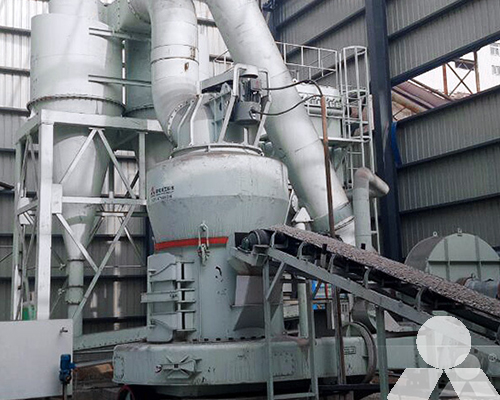Limestone
Last Updated :2023-10-05 Views:449
Factory production of limestone powder grinding mill
Producing limestone powder through a factory or industrial process involves several steps, including mining, crushing, grinding, and processing. Here’s a general overview of the process:

- Mining: Limestone is typically obtained through open-pit or underground mining. Large equipment, such as bulldozers and front-end loaders, are used to extract the limestone from the ground.
- Crushing: The mined limestone is transported to a crushing plant, where it is reduced to smaller pieces using crushers. This process is essential to break the limestone into manageable sizes for further processing.
- Grinding: Once the limestone is crushed, it needs to be finely ground into a powder form. The most common equipment used for this purpose is a limestone powder grinding mill. There are several types of grinding mills that can be used, including:
- Raymond Mill: This mill uses a vertical structure with a small footprint. It is suitable for processing various non-flammable and non-explosive mineral materials with Moh’s hardness less than 9.3 and humidity less than 6%.
- Ball Mill: Ball mill is commonly used for grinding materials into extremely fine powders. They are versatile and can grind various types of materials, including limestone.
- Vertical Roller Mill (VRM): VRMs are becoming increasingly popular in the cement and minerals industries for efficient grinding of various materials, including limestone.
- Ultrafine Mill: This type of mill is designed for producing ultra-fine powder and can be used for grinding limestone into very fine particles.
- Classifying and Sorting: After grinding, the limestone powder may need to go through a classifying or sorting process to ensure the desired particle size distribution is achieved. This step is crucial for meeting specific quality requirements.
- Packaging and Storage: The final limestone powder is then packaged in bags or bulk containers, depending on the intended use. Proper storage is essential to prevent moisture absorption and maintain product quality.
- Quality Control: Throughout the production process, quality control measures are implemented to ensure the limestone powder meets the required specifications, such as particle size, purity, and chemical composition.
- Environmental Considerations: It’s important for limestone powder production facilities to adhere to environmental regulations, especially in terms of dust control and wastewater management.
The specific details of the production process may vary depending on the equipment and technology used in the factory. Additionally, the quality and characteristics of the limestone source can also impact the production process and the properties of the final limestone powder. Environmental and safety considerations are essential in the production of any industrial material, including limestone powder.









